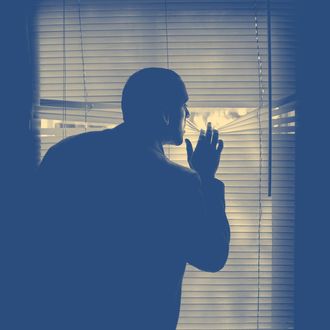
Conspiracy theories are all around us. Sometimes they’re relatively harmless — concerns about Roswell aliens aren’t having a major effect on public policy — and sometimes they’re not: Something like 37 percent of Americans believe that anthropogenic climate change is a hoax, which has a pretty disastrous effect on the U.S.’s ability to contribute meaningfully to a potentially catastrophic problem.
More broadly, there’s some research suggesting that conspiracy beliefs are linked to a reduction in pro-social behavior, civic engagement, and the other sorts of things associated with being a “good citizen.” A new study in Personality and Individual Differences offers some new clues about how all this works.
The author, Princeton University researcher Dr. Sander van der Linden, recruited 316 Amazon Mechanical Turk volunteers, who were divided into three groups: One watched a clip from a film arguing that concerns over global warming are actually part of a global conspiracy, one watched a U.N. video seeking to raise awareness of the threat it poses, and a third, the control group, were asked to solve a “neutral word puzzle.”
After watching the videos, the participants were asked to estimate what percentage of scientists believe in the reality of anthropogenic climate change, to reveal their political orientation on a simple liberal-conservative scale, to reveal how much they believed global warming to be a hoax, and to answer two questions designed to gauge their general pro-social tendencies: “How likely are you to donate to a charity or charitable organization in the next six months?” and “How likely are you to volunteer your time at a local community or charitable organization in the next six months?” They were also asked if they wanted to sign a real-life online petition about fighting global warming.
Generally speaking, the results were what you might expect — those who viewed the hoax video reported less belief in global warming and were less keen to sign the petition. But the researchers also noted an effect on pro-social tendencies. They write:
Moreover, this study finds that briefly exposing the public to conspiratorial thoughts about a specific issue may even decrease general pro-social tendencies. These findings are consistent with other recent research that has alluded to the notion that conspiracy ideation can lead to the motivated rejection of science and decreased civic engagement
It’s a common-sense case to make — this Newsweek article nicely runs down the damage that’s done when everyone believes in conspiracy theories, and part of that is a decrease in civic engagement, or at least useful civic engagement. It’s also one study done on Mechanical Turk volunteers, and pro-social intentions rather than actual behavior were tracked.
Plus, how long would these effects last? Part of the problem with changing the minds of conspiracy-addled people is that they seek out similarly conspiracy-minded sources while discounting attempts at debunking, leading to a snowball effect. So whatever effects conspiracy theories have on people, a study in which someone watches one video and immediately responds to it can only tell a small part of the story. If 60 minutes after watching the video, the participants revert to some baseline level of pro-social behavior, that would tell us something interesting, too. There’s a lot we don’t know about about the effects of conspiracy theories.




